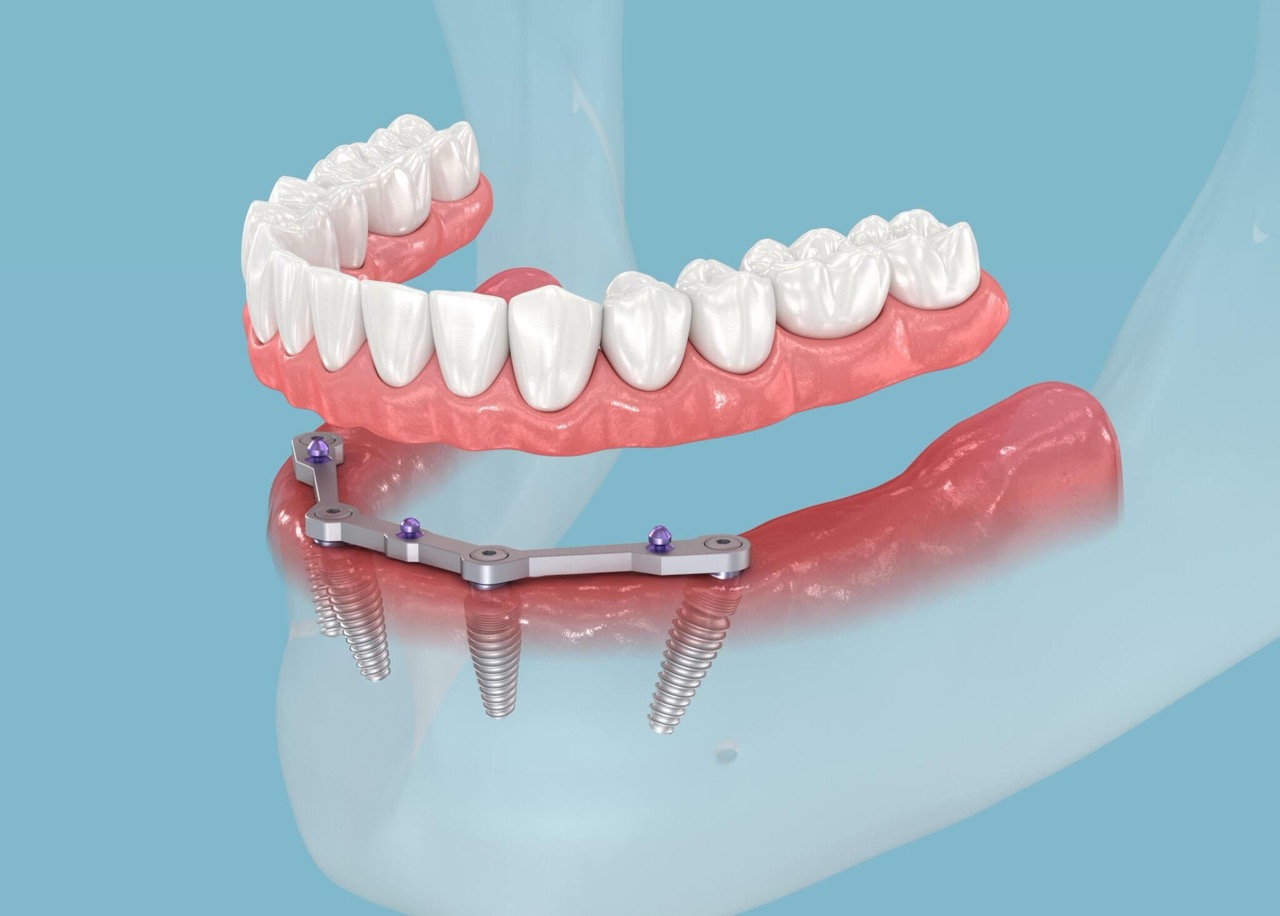Ever bitten into something sweet and felt a sharp twinge in your tooth? It’s a feeling that can make anyone worry about infections. But here's a head-scratcher for you: Can something as simple as salt draw out an infection in a tooth? Many of us have heard the old wives' tale about salt being a magical cure-all, but what’s the truth behind it?
While there's no specific study shouting from the rooftops about salt's ability to banish tooth infections, a 2014 retrospective study offers a tiny breadcrumb of insight. It noted that 8.4% of folks who had wisdom teeth yanked out faced minor hiccups, including infections. This highlights the risk of dental infections and how simple saltwater rinses can help keep those pesky bacteria at bay. This matters because understanding easy home remedies can make managing dental health less of a pain in the tooth!
What's Happening Now?
In today's world, we're more aware than ever of the little things that can make a big difference in our health. With dental care at the forefront, the idea of using saltwater rinses to manage infections has gained attention. Even though there isn't a brand-new study breaking the news, the chatter around using salt is still going strong.
Saltwater rinses are a classic go-to, and it's because they can help reduce bacteria in the mouth, which is crucial when dealing with infections. This isn't just folk wisdom; it's about using simple tools to help prevent big problems.
Why It Matters Now
Ignoring a tooth infection isn't just about risking a toothache. If left unchecked, the infection can spread and cause serious health issues like sepsis. The stakes are high, and knowing how to manage these infections at home is more important than ever.
Though there isn't a cutting-edge study from the last five years, the existing knowledge reminds us of the severe consequences of untreated infections. It's crucial to tackle these problems early and effectively.
Myth Busting: Salt and Tooth Infections
- Myth: Salt can completely cure a tooth infection.
- Fact: Saltwater rinses can help manage bacteria and reduce symptoms, but they are not a cure. It's always best to see a dentist for a proper treatment plan.
- Myth: Any salt will do the trick.
- Fact: While most salts have antibacterial properties, using a saline solution (a mix of salt and water) is what's recommended for mouth rinses.
Understanding these myths helps in making informed decisions about dental health. So, while salt isn’t a magic wand, it can be a helpful part of your toolkit for managing tooth infections.
The Verdict on Salt
Salt can help manage tooth infection symptoms but isn't a one-stop cure. It can reduce the number of bacteria and soothe your gums, but if you're dealing with a serious infection, a dentist is your best friend.
Expert Advice
Dentists often recommend saltwater rinses as a first step in managing dental discomfort. Here’s why:
- Reduces Inflammation: Saltwater can help calm swollen gums and reduce inflammation.
- Promotes Healing: It aids in cleaning the area, which can promote healing after procedures like tooth extractions.
- Simple and Safe: Mixing a teaspoon of salt in a cup of warm water is an easy and safe solution for most people.
However, for more severe infections, dentists may prescribe antibiotics or other treatments. They stress that while salt can help, it should not replace professional care.
Surprising Findings from Studies
Let's dive into something a bit unexpected. A study published on NCBI explored the effectiveness of ornidazole, an anti-anaerobic drug. It found this drug to be significantly more effective than routine treatments in reducing oral bacteria and the time it takes for pain and swelling to disappear.
This might seem counterintuitive because many people lean on natural remedies like saltwater rinses. But in this case, the study highlights that modern medicine, like antibiotics, can be more effective for serious conditions. It's a reminder that while home remedies have their place, they sometimes can't match the power of targeted medications.
Unique Insights and Considerations
Understanding the role of salt in dental care isn't just about knowing the facts—it's about seeing the bigger picture. Here are some insights to consider:
- Accessibility: Salt is accessible and affordable for most people worldwide, making it a go-to option for immediate relief.
- Complementary Use: Saltwater rinses can be a complementary treatment alongside antibiotics or other dental care, not a replacement.
- Prevention: Regular use of saltwater can help prevent minor issues from becoming major problems by keeping bacterial growth in check.
- Misconceptions: Many believe salt can cure infections, leading to delays in seeking professional care, which can worsen the situation.
The takeaway? While saltwater rinses are helpful, especially for minor discomforts, they are not a cure-all. It's crucial to recognise when professional help is needed, especially if symptoms like swelling or pain persist. Think of salt as a handy tool, but not the entire toolkit.
So, the next time you're in a pinch with a toothache, reach for that salt shaker, but don't forget your dentist's phone number. Balancing home remedies with professional care is key to keeping your smile healthy and bright.
Innovative Approaches: Step-by-Step Guide
Ready to tackle that toothache with some innovative steps? Here's how you can incorporate saltwater rinses effectively:
- Prepare the Solution: Mix one teaspoon of salt in a cup of warm water. Stir until the salt dissolves completely.
- Rinse Properly: Take a sip of the solution and swish it around your mouth for about 30 seconds to 1 minute. Focus on the affected area.
- Spit It Out: Do not swallow the solution. Spit it out in the sink.
- Repeat: Do this rinse two to three times a day, especially after meals, to keep your mouth clean.
- Monitor Symptoms: Keep an eye on any changes in pain or swelling, and consult your dentist if symptoms persist.
Interactive Element: Should You See a Dentist?
Not sure if it's time to call in the pros? Use this interactive checklist:
- Is the pain persistent or worsening?
- Is there noticeable swelling in your gums or face?
- Do you have a fever or feel unwell?
- Is there a bad taste or odour coming from the infected area?
If you answered "yes" to any of these questions, it's time to see a dentist for professional care.
Before-and-After Case Study
Let's take a closer look at a real-life case studied by Carson DDS. While the main focus wasn't on salt alone, it played a supportive role in managing the infection.
Before: The patient had a severe tooth infection causing swelling and pain. Initial home remedies, including saltwater rinses, provided some relief but weren't sufficient alone.
After: The dental team executed a comprehensive treatment plan, including incision and drainage, a root canal, and antibiotics. Saltwater was used to help draw the infection toward the surface for drainage, aiding the healing process.
Lessons Learned
- Salt as Support: Saltwater rinses can help reduce infection, pain, and inflammation but are best used as part of a broader treatment plan.
- Don't Rely Solely on Salt: While helpful, saltwater alone can't replace dental procedures and professional care.
- Professional Treatment is Key: Proper dental care and timely professional treatment are essential for effectively addressing and treating dental infections.
In the end, this case highlights the importance of integrating simple home remedies with professional dental care. Salt can be your ally, but it works best when backed by expert intervention.
Emerging Trends and Their Impact
The world of dental care is buzzing with innovations, particularly the integration of nanotechnology in dental materials. According to a study on De Gruyter, antimicrobial nanoparticles like silver, gold, and titanium are paving the way for improved dental treatments.
These tiny particles can prevent biofilms from forming on teeth, which are often the culprits behind tooth infections and decay. This trend has the potential to revolutionise dental care by enhancing the antimicrobial properties of restorative materials, reducing the need for traditional methods like saltwater rinses. Imagine a world where infections are tackled at the root with cutting-edge technology!
Future Considerations
When we talk about the future of managing tooth infections, we need to consider a range of expert insights:
- Saltwater Rinse Efficacy: Experts agree that saltwater rinses can help with symptoms but aren't a cure. They should be a temporary solution until a dental visit is possible.
- Limitations and Risks: Saltwater rinses offer relief but don't tackle the root infection. Ignoring infections can lead to serious health issues like sepsis.
- Advanced Treatment Directions: Future treatments may include other natural antimicrobials, like tea tree oil, offering more ways to prevent and treat infections.
- Professional Care Importance: Dental professionals emphasise the need for professional care. Home remedies are good partners but not substitutes for dental treatment.
- Preventive Measures: Regular check-ups and solid oral hygiene remain vital to prevent infections from starting.
How You Can Prepare
As dental care evolves, here’s how you can stay ahead:
- Stay Informed: Keep up with the latest in dental technology and treatments. Knowing what's available can help you make informed decisions.
- Regular Check-Ups: Don't skip those dentist appointments! Early detection can prevent many dental woes.
- Maintain Good Oral Hygiene: Brush, floss, and rinse regularly to keep those pesky bacteria at bay.
- Be Open to New Treatments: As new treatments emerge, be open to trying them under professional guidance.
- Use Home Remedies Wisely: In the meantime, continue using saltwater rinses as a supplementary measure, not a primary treatment.
By preparing for changes and embracing new technologies, you can ensure that your dental health is in top shape with the best of both worlds—traditional wisdom like saltwater and modern innovations.
Key Insights Summarized
We've delved into the world of dental care and the role of saltwater in managing tooth infections. Here's what we've learned:
- Saltwater Rinses: They can help manage symptoms but are not a cure. They're best used as part of a broader dental care strategy.
- Professional Care is Essential: While home remedies can offer temporary relief, professional diagnosis and treatment are crucial for addressing the root of the infection.
- Emerging Technologies: Innovations like antimicrobial nanoparticles are paving the way for more effective dental treatments, potentially reducing reliance on traditional methods.
Unique Action Items for Immediate Implementation
If you're dealing with a tooth infection or want to be prepared, here are some steps you can take right away:
- Start with Salt: Use the classic saltwater rinse for immediate symptom relief. Mix a teaspoon of salt in warm water, rinse thoroughly, and spit it out.
- Explore Additional Remedies: Try other home remedies like baking soda, oregano essential oil, and hydrogen peroxide for temporary relief.
- Schedule a Dental Visit: Make an appointment with your dentist for a professional evaluation and treatment plan.
- Stay Informed: Keep an eye on emerging dental treatments and technologies that could offer more advanced care options.
Resources for Continued Learning and Application
For those eager to dive deeper and apply what you've learned, here are some handy resources:
- My Wellness Dental Blog: Offers detailed instructions on using saltwater rinses, and additional home remedies, and underscores the importance of professional dental care.
- Carson DDS: Explore case studies and insights into comprehensive treatment plans for dental infections.
- De Gruyter Study: Learn more about the role of nanotechnology in enhancing dental treatments.
By leveraging these resources, you can continue to expand your understanding and take proactive steps in managing your dental health effectively. Remember, while salt is a handy ally, combining it with professional care and staying informed about new treatments is key to maintaining a healthy smile.
Wrapping It All Up
So, what's the lowdown on salt and tooth infections? Saltwater rinses offer a simple, age-old method to ease the discomfort of tooth infections by reducing bacteria and soothing inflammation. However, they're not a standalone solution for treating the actual infection. The real takeaway here is that while saltwater can be a helpful ally, it should work hand-in-hand with professional dental care to effectively tackle infections.
Here's a thought-provoking insight: Our reliance on home remedies often reflects our desire for quick fixes, but lasting health requires a deeper commitment to professional care and prevention.
Don't wait for that toothache to escalate. Take action today by booking a consultation with Karana Downs Dental. Their expert team can provide a thorough diagnosis and tailor a treatment plan that addresses your needs, ensuring your dental health is in the best possible hands.
Remember, a little salt can go a long way, but a dentist's expertise will guide you the rest of the journey towards a healthier smile.















